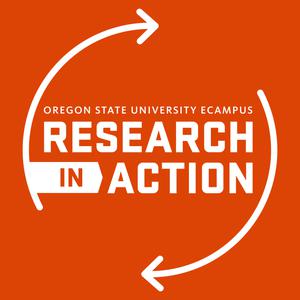
Research in Action | A podcast for faculty & higher education professionals on research design, methods, productivity & more
Dr. Katie Linder, Director of the Oregon State University Ecampus Research Unit
A weekly podcast about topics and issues related to research in higher education featuring guests from a range of disciplines.
- 35 minutes 49 seconds[From the Archives] Ep 169: Dr. Helen Kara on Research Ethics
On this episode, Katie is joined by Dr. Helen Kara, Director of We Research It Ltd, who has been an independent researcher since 1999 and writes and teaches on research methods. She is the author of Creative Research Methods in the Social Sciences: A Practical Guide (Policy Press, 2015). She is not, and never has been, an academic, though she has learned to speak the language. In 2015, Helen was the first fully independent researcher to be conferred as a Fellow of the Academy of Social Sciences. She is also a Visiting Fellow at the UK’s National Centre for Research Methods. Her latest book is Research Ethics in the Real World: Euro-Western and Indigenous Perspectives (Policy Press, 2018).
Segment 1: Research Ethics [00:00-20:58]
In this first segment, Helen shares about her recent book on research ethics.
In this segment, the following resources are mentioned:
- We Research It Ltd
- Kara, H. (2015). Creative research methods in the social sciences: A practical guide. Bristol, UK: Policy Press.
- Kara, H. (2018). Research ethics in the real world: Euro-Western and indigenous perspectives. Bristol, UK: Policy Press.
Segment 2: Researching Independently [20:59-35:31]
In segment two, Helen shares about her experience being a long-term independent researcher.
In this segment, the following resources are mentioned:
To share feedback about this podcast episode, ask questions that could be featured in a future episode, or to share research-related resources, post a comment below or contact the “Research in Action” podcast:
Twitter: @RIA_podcast or #RIA_podcast Email: [email protected] Voicemail: 541-737-1111
If you listen to the podcast via iTunes, please consider leaving us a review.
The views expressed by guests on the Research in Action podcast do not necessarily represent the views of Oregon State University Ecampus or Oregon State University.
21 December 2020, 4:28 pm - 37 minutes 15 seconds[From the Archives] Ep 122: Dr. Rebekah Willson on Grounded Theory
On this episode, Katie is Joined by Dr. Rebekah Willson, a Lecturer in Information Science in the Department of Computer and Information Sciences, University of Strathclyde, Glasgow, UK. Originally from Canada, she obtained her PhD from Charles Sturt University in Australia in 2016. Her dissertation focused on the experience of individuals transitioning from doctoral student to early career academic. Her main area of research is in information behavior including what information individuals need and how they find, share, and use that information — particularly in the workplace. Her latest research examines the precarity in modern universities and the influence that has on the information behaviour of academics on short-term contracts. For more information and her CV, please go to rebekahwillson.com
Segment 1: Information Behavior Research [00:00-12:25]
In this first segment, Rebekah describes her research in information behavior.
In this segment, the following resources are mentioned:
Segment 2: Grounded Theory [12:26-24:27]
In segment two, Rebekah shares some of her experiences using grounded theory as a methodology.
Segment 3: Researching Academics in Transition [24:28-36:57]
In segment three, Rebekah shares about her most recent research on academics on short-term contracts.
To share feedback about this podcast episode, ask questions that could be featured in a future episode, or to share research-related resources, post a comment below or contact the “Research in Action” podcast:
Twitter: @RIA_podcast or #RIA_podcast Email: [email protected] Voicemail: 541-737-1111
If you listen to the podcast via iTunes, please consider leaving us a review.
The views expressed by guests on the Research in Action podcast do not necessarily represent the views of Oregon State University Ecampus or Oregon State University.
7 December 2020, 4:34 pm - 36 minutes 50 seconds[From the Archives] Ep 136: Dr. Rebecca Thomas on Dissertation Writing
On today’s episode, Katie is joined by Dr. Rebecca Thomas, who is currently a postdoctoral scholar for the Ecampus Research Unit at Oregon State University. She recently earned a Ph.D. in Psychology from the University of Texas San Antonio (UTSA), where she successfully defended her dissertation on aggressive behavior in college students’ friends with benefits relationships in July 2018. Prior to UTSA, she earned an M.S. in Instructional Psychology & Technology from Brigham Young University (BYU). She is excited to apply her training and experience in study design, participant recruitment, and dissemination obtained at UTSA in combination with her previous experience on student success at BYU, in her new role as a postdoctoral scholar.
Segment 1: Choosing a Dissertation Topic [00:00-11:25]
In this first segment, Becca shares about her experience choosing a dissertation topic.
In this segment, the following resources are mentioned:
- Bolker, J. (1998). Writing your dissertation in fifteen minutes a day: A guide to starting, revising, and finishing your doctoral thesis. New York: Henry Holt and Company, LLC.
- Boyle Single, P. (2009). Demystifying dissertation writing. Sterling, VA: Stylus Publishing.
- Roberts, C. M. (2010). The dissertation journey: A practical and comprehensive guide to planning, writing, and defending your dissertation. Thousand Oaks, CA: Corwin.
- The Thesis Whisperer Blog
Segment 2: Getting the Dissertation Done [11:26-22:28]
In segment two, Becca shares productivity strategies for writing a dissertation.
Segment 3: Post-dissertation Dissemination [22:29-36:32]
In segment three, Becca shares her plans for disseminating her dissertation results.
In this segment, the following resources are mentioned:
- RIA # 106: Ali Duerfeldt on Research Dissemination Plans
- Rocco, T. S., Hatcher, G. T., & Associates. (2011). The handbook of scholarly writing an publishing. San Francisco, CA: Jossey-Bass.
To share feedback about this podcast episode, ask questions that could be featured in a future episode, or to share research-related resources, post a comment below or contact the “Research in Action” podcast:
Twitter: @RIA_podcast or #RIA_podcast Email: [email protected] Voicemail: 541-737-1111
If you listen to the podcast via iTunes, please consider leaving us a review.
The views expressed by guests on the Research in Action podcast do not necessarily represent the views of Oregon State University Ecampus or Oregon State University.
23 November 2020, 4:27 pm - 37 minutes 28 seconds[From the Archives] Ep 170: Dr. Larry Rosen on Technology and the Brain
On this episode, Katie is joined by Dr. Larry Rosen, Professor Emeritus and past chair of the psychology department at California State University, Dominguez Hills. He is a research psychologist recognized as an international expert in the “Psychology of Technology.” Over the past 30-plus years, Dr. Rosen and his colleagues have examined reactions to technology among more than 100,000 people in the United States and in 22 other countries. His latest book, The Distracted Mind: Ancient Brains in a High-Tech World (MIT Press, 2016), won the PROSE Award for neuroscience. Dr. Rosen has been featured extensively in television, print, and radio media and has been a commentator on 60 Minutes, The Daily Show, Good Morning America, NPR, and CNN. Dr. Rosen has four children including one in the iGeneration, one in the Net Generation and two in Generation X and four grandchildren to watch growing up with technology. For fun he creates works of art from old computer technology, clocks and early rock and roll music. In his free time he enjoys reading international intrigue novels, fiddling with his newest geek toy, going to independent films, and trying to find ways to keep his Humanware safe from the technology vying for his attention. His website is DrLarryRosen.com
Segment 1: Technology and the Brain [00:00-18:53]
In this first segment, Larry describes some of his research on the effect of technology on the brain.
In this segment, the following resources are mentioned:
- Gazzaley, A., & Rosen, L. (2016). The distracted mind: Ancient brains in a high-tech world. Cambridge, MA: MIT Press.
- Learn more about Dr. Larry Rosen on his website: DrLarryRosen.com
- Weil, M. M., & Rosen, L. D. (1997). TechnoStress: Coping with technology @Work @Home @Play. New Jersey: Wiley.
Segment 2: Multitasking in the Classroom [18:54-37:11]
In segment two, Larry shares about his research study on multitasking in the classroom.
In this segment, the following resources are mentioned:
- Disconnected: A Documentary
- National Sleep Foundation
- Functional Near-infrared Spectroscopy (fNIRS)
- Children and Screens
- Psychology of Technology Institute
To share feedback about this podcast episode, ask questions that could be featured in a future episode, or to share research-related resources, post a comment below or contact the “Research in Action” podcast:
Twitter: @RIA_podcast or #RIA_podcast Email: [email protected] Voicemail: 541-737-1111
If you listen to the podcast via iTunes, please consider leaving us a review.
The views expressed by guests on the Research in Action podcast do not necessarily represent the views of Oregon State University Ecampus or Oregon State University.
9 November 2020, 4:41 pm - 33 minutes 39 seconds[From th Archives] Ep 158: Dr. Steven Camicia on Democratic Education
On this episode, Katie is joined by Dr. Steven Camicia, an associate professor of social studies education at Utah State University. His research focuses on curriculum and instruction in the areas of perspective consciousness and social justice as they relate to critical democratic education. The term “critical” modifies “democratic education” in order to focus upon the attributes of power, inclusion, and recognition in democratic education. He was awarded an American Educational Studies Association 2017 Critics’ Choice Book Award for his book entitled, Critical Democratic Education and LGBTQ-Inclusive Curriculum: Opportunities and Constraints. In his book, he examines how the contexts in Utah and California might influence what can and cannot be said in classrooms about LGBTQ individuals and issues. His research has been published in scholarly journals such as Theory and Research in Social Education, The Social Studies, Social Studies Research and Practice, International Journal of Social Studies Research, Journal of Teaching and Teacher Education, the Journal of Public Deliberation, and the London Review of Education. He is a former associate editor of Theory and Research in Social Education. His research interests stemmed from his experiences as a former elementary school teacher.
Segment 1: Researching Democratic Education [00:00-13:50]
In this first segment, Steven shares some of his projects focused on researching democratic education.
In this segment, the following resources are mentioned:
- Butler, J. (2006). Precarious life: The powers of mourning and violence. New York: Verso.
- Camicia, S. P. (2007). Deliberating immigration policy: Locating instructional materials within global and multicultural perspectives. Theory and Research in Social Education 35(1), 96-111.
- Camicia, S. P. (2009). Teaching the Japanese American internment: A case study of social studies curriculum conflict and change. Journal of Social Studies Research, 33(1), 113-132.
- Camicia, S. P. (2012). An ethics of recognition in global and teacher education: Looking through queer and postcolonial Lenses. International Journal of Development Education and Global Learning, 4(1), 25-35.
- Camicia, S. P. (2016). Critical democratic education and LGBTQ-inclusive curriculum: Opportunities and constraints. New York: Routledge.
- Hess, D. E., & McAvoy, P. (2015). The political classroom: Evidence and ethics in democratic education. New York: Routledge.
- Mouffe, C. (2000). The democratic paradox. London: Verso.
- Parker, W. C. (2004). Diversity, globalization, and democratic education: Curriculum possibilities. In J. A. Banks (Ed.), Diversity and citizenship education: Global perspectives (pp. 433-458). San Francisco, CA: Jossey-Bass
Segment 2: Diversity, Inclusion and Social Justice [13:51-23:21]
In segment two, Steven discusses how his research includes an emphasis on diversity, inclusion, and social justice.
In this segment, the following resources are mentioned:
- Au, W. (2012). Critical curriculum studies: Education, consciousness and the politics of knowing. New York: Routledge.
- Banks, J. A. (1996). The cannon debate, knowledge construction, and multicultural education. In J. A. Banks (Ed.), Multicultural education, transformative knowledge, and action: Historical and contemporary perspectives (pp. 3-29). New York: Teacher College Press.
- Benhabib, S. (2002). The claims of culture: Equality and diversity in the global era. Princeton, NJ: Princeton University Press.
- Harding, S. (1995). “Strong objectivity”: A response to the new objectivity question. Synthese, 104(3), 331-349.
- Parker, W. C. (Ed.) (1996). Educating the democratic mind. Albany, NY: State University of New York Press.
- Camicia, S. P., & Knowles, R. T. (forthcoming). Education for Democracy: A Renewed Approach to Civic Inquiries for Social Justice. Charlotte, NC Information Age Publishing, Inc.
- Camicia, S. P. (forthcoming). LGBTQ Inclusion and Exclusion in State Social Studies Standards: Implications for Critical Democratic Education. Curriculum and Teaching Dialogue.
- Camicia, S. P. (forthcoming). Disturbing Democratic Education: Rethinking Power, Inclusion, and Recognition.
Segment 3: Helping Students Understand Political Discourses [23:22-33:28]
In segment three, Steven describes his most recent project on using social studies to help students engage in political debates and discussions.
In this segment, the following resources are mentioned:
- Young, I. M. (2002). Inclusion and democracy. New York: Oxford University Press.
To share feedback about this podcast episode, ask questions that could be featured in a future episode, or to share research-related resources, post a comment below or contact the “Research in Action” podcast:
Twitter: @RIA_podcast or #RIA_podcast Email: [email protected] Voicemail: 541-737-1111
If you listen to the podcast via iTunes, please consider leaving us a review.
The views expressed by guests on the Research in Action podcast do not necessarily represent the views of Oregon State University Ecampus or Oregon State University.
26 October 2020, 3:28 pm - 37 minutes 14 seconds[From the Archives] Ep 128: Dr. Jesse Nelson on Diversity and Inclusion in Higher Education
On this episode, Katie is joined by Jesse Nelson, the Associate Provost for Academic Achievement at Oregon State University. He holds a doctorate in Education Policy Studies from Indiana University and an M.B.A. from Oregon State University. Professionally, he has worked at the University of Utah, Indiana University-Purdue University Indianapolis, Central Washington University, and Oregon State University. Throughout his career, Jesse’s focus has centered on issues of teaching & learning, diversity & inclusivity, and student success. In addition to administrative responsibilities, Jesse thoroughly enjoys being in the classroom; he has taught graduate courses in research methods and higher education and undergraduate courses in leadership and student success. With his wife and two teenage sons, the family enjoys gardening, outdoor adventures, good books, and board games.
Segment 1: Changes in Student Success Models [00:00-15:17]
In this first segment, Jesse discusses some of the changes in student success models over time.
Segment 2: Diversity, Inclusion and Student Success [15:18-26:22]
In segment two, Jesse shares about how valuing diversity and inclusion can impact student success.
In this segment, the following resources are mentioned:
- Papers on privilege by Dr. Peggy McIntosh:
- White privilege and male privilege: A personal account of coming to see correspondences through work on women’s studies (1988)
- White privilege: Unpacking the invisible knapsack (1989)
- Other resources mentioned by Dr. Nelson:
- Davis, M., Dias-Bowie, Y., Greenberg, K., Klukken, G., Pollio, H. R., Thomas, S. P., & Thompson, C. L. (2004). A fly in the buttermilk: Descriptions of university life by successful Black undergraduate students at a predominately white southeastern university. The Journal of Higher Education, 75, 420-445.
Segment 3: Diversity and Inclusion Practices for Online Classrooms [26:23-37:02]
In segment three, Jesse discusses methods for prioritizing diversity and inclusion in the online classroom.
HIP Bonus Clip #2 [18:30]: Communicating with Contributors
In this second bonus clip for our “back to school” miniseries, Katie chats with her co-editor, Chrysanthemum Mattison Hayes, about their experiences communicating with contributors.
To share feedback about this podcast episode, ask questions that could be featured in a future episode, or to share research-related resources, post a comment below or contact the “Research in Action” podcast:
Twitter: @RIA_podcast or #RIA_podcast Email: [email protected] Voicemail: 541-737-1111
If you listen to the podcast via iTunes, please consider leaving us a review.
The views expressed by guests on the Research in Action podcast do not necessarily represent the views of Oregon State University Ecampus or Oregon State University.
12 October 2020, 3:38 pm - Papers on privilege by Dr. Peggy McIntosh:
- 32 minutes 44 seconds[From the Archives] Ep 88: Dr. Asao B. Inoue on Writing Assessment as Anti-racist Practice
On this episode, Katie is joined by Asao B. Inoue, Professor of Interdisciplinary Arts and Sciences, Director of University Writing and the Writing Center at the University of Washington Tacoma, a member of the Executive Board of Council of Writing Program Administrators, and the Program Chair of the 2018 Conference on College Composition and Communication. Among his many articles and chapters on writing assessment and race and racism, his article, “Theorizing Failure in U.S. Writing Assessments” in RTE, won the 2014 CWPA Outstanding Scholarship Award. His co-edited collection, Race and Writing Assessment (2012), won the 2014 NCTE/CCCC Outstanding Book Award for an edited collection. His book, Antiracist Writing Assessment Ecologies: Teaching and Assessing for a Socially Just Future (2015) won the 2017 NCTE/CCCC Outstanding Book Award for a monograph and the 2015 CWPA Outstanding Book Award. In November of 2016, he guested co-edited a special issue of College English on writing assessment as social justice, and is currently finishing a co-edited collection on the same topic, as well as a book on labor-based grading contracts as socially just writing assessment.
Segment 1: Alternative Modes of Writing Assessment [00:00-14:17]
In this first segment, Asao shares about his research and experience with grade-less writing and grading contracts.
In this segment, the following resources are mentioned:
- Inoue, A. B. (2014). Theorizing failure in U.S. writing assessments. Research in the Teaching of English, 48(3), 330-352.
- Inoue, A. B., & Poe, M. (Eds.). (2012). Race and writing assessment. New York: Peter Lang Publishing, Inc.
- Inoue, A. B. (2015). Antiracist writing assessment ecologies: Teaching and assessing for a socially just future. Anderson, SC: Parlor Press.
- College English
- Kohn, A. (1993). Punished by rewards: The trouble with gold stars, incentive plans, A’s, praise, and other bribes. New York: Houghton Mifflin Harcourt Publishing Company.
- Selected works of Peter Elbow
Segment 2: Writing Assessment as Anti-racist Practice [14:18-32:31]
In segment two, Asao discusses his research on writing assessment as anti-racist practice.
To share feedback about this podcast episode, ask questions that could be featured in a future episode, or to share research-related resources, post a comment below or contact the “Research in Action” podcast:
Twitter: @RIA_podcast or #RIA_podcast Email: [email protected] Voicemail: 541-737-1111
If you listen to the podcast via iTunes, please consider leaving us a review.
The views expressed by guests on the Research in Action podcast do not necessarily represent the views of Ecampus or Oregon State University.
28 September 2020, 3:44 pm - 35 minutes 54 seconds[From the Archives] Ep 173: Dr. Mary Ellen Dello Stritto and Stephania Fregosi on Data and Methods in Sustainability Research
On this episode, guest host Dr. Mary Ellen Dello Stritto is joined by Stephania Fregosi, Sustainability Analyst at Portland Community College. In her role, Stephania completes greenhouse gas inventories, the Sustainability, Tracking, and Rating system report, does research, and provides other support for the college. She earned her Master’s Degree in Environmental Law from the Vermont Law School and her Bachelor of Arts in Environmental Studies from Oberlin College. Stephania has worked in a variety of sustainability roles including sustainability coordination, project management, environmental assessment, community development, and environmental education. She has a passion for social justice, equity, and inclusion and recently served on the Diversity & Inclusion Committee as part of the advisory board of the Association for the Advancement of Sustainability in Higher Education.
Segment 1: Data use and Methods in Sustainability [00:00-16:47]
In this first segment, Stephania discusses what data and methods she uses in her role as a sustainability analyst.
In this segment, the following resources are mentioned:
- Sustainability Tracking, Assessment & Rating System (STARS)
- Intergovernmental Panel on Climate Change (IPCC)
- Economic Input-Output Life Cycle Assessment
Segment 2: Analysis and Decision Making [16:48-35:38]
In segment two, Stephania discusses data analysis and the role of data in her work.
In this segment, the following resources are mentioned:
- State Renewable Portfolio Standards
- Economic Input-Output Life Cycle Assessment
- Oregon Department of Environmental Quality
- Environmental Protection Agency (EPA)
- Second Nature Climate Council
- Greenhouse Gas Protocol
- Sustainable Purchasing Leadership Council
To share feedback about this podcast episode, ask questions that could be featured in a future episode, or to share research-related resources, post a comment below or contact the “Research in Action” podcast:
Twitter: @RIA_podcast or #RIA_podcast Email: [email protected] Voicemail: 541-737-1111
If you listen to the podcast via iTunes, please consider leaving us a review.
The views expressed by guests on the Research in Action podcast do not necessarily represent the views of Oregon State University Ecampus or Oregon State University.
14 September 2020, 3:38 pm - 38 minutes 59 seconds[From the Archives] Ep 160: Dr. Mary Ellen Dello Stritto and Dr. Stephen Jenkins on Academic Advising Online
On this episode, guest host Dr. Mary Ellen Dello Stritto, is joined by Stephen Jenkins. Stephen is the Interim Executive Director of University Housing and Dining Services at Oregon State University. He has 18 years of experience in higher education student affairs at several institutions. Stephen recently completed his Doctorate of Education in Educational Leadership – Post-secondary Education. For his dissertation, he studied the academic advising experiences and learning of online learners.
Segment 1: Academic Advising for Online Learners [00:00-11:19]
In this first segment, Stephen shares about the background research on online academic advising.
In this segment, the following resources are mentioned:
- Curry, R. F. (1997). Academic advising in distance education (Doctoral dissertation). The College of William and Mary in Virginia. Retrieve from https://www.learntechlib.org/p/118296/
- Moore, M. G. (Ed.). (2013). Handbook of distance education (3rd ed.). New York: Routledge.
Segment 2: Methodological Approach [11:20-23:19]
In segment two, Stephen discusses the theoretical background and methodological approach.
In this segment, the following resources are mentioned:
- Crookston, B. B. (1972). A developmental view of academic advising as teaching, Journal of College Student Personnel, 13(1), 12-17.
- O’Banion, T. (1994). An academic advising model. NACADA Journal, 14(2), 10-16.
- Smith, C. L., & Allen, J. M. (2006). Essential functions of academic advising: What students want and get. NACADA Journal 26(1), pp. 56-66.
Segment 3: Overall Findings and Implications [23:20-38:50]
In segment three, Stephen shares about his overall findings in his research on academic advising for online learners.
In this segment, the following resources are mentioned:
- Smith, C. L., & Allen, J. M. (2006). Essential functions of academic advising: What students want and get. NACADA Journal 26(1), pp. 56-66.
- Moore, M. G. (Ed.). (2013). Handbook of distance education (3rd ed.). New York: Routledge.
To share feedback about this podcast episode, ask questions that could be featured in a future episode, or to share research-related resources, post a comment below or contact the “Research in Action” podcast:
Twitter: @RIA_podcast or #RIA_podcast Email: [email protected] Voicemail: 541-737-1111
If you listen to the podcast via iTunes, please consider leaving us a review.
The views expressed by guests on the Research in Action podcast do not necessarily represent the views of Oregon State University Ecampus or Oregon State University.
31 August 2020, 3:30 pm - 36 minutes 20 seconds[From the Archives] Ep 145: Dr. Mary Ellen Dello Stritto and Dr. Mimi Recker on Learning Analytics and Big Data
On this episode, guest host Dr. Mary Ellen Dello Stritto is joined by Mimi Recker, a professor in the department of Instructional Technology and Learning Sciences at Utah State University. She holds a bachelor’s degree in mathematics from the University of Pennsylvania. After a few years working as a software engineer in Silicon Valley (working on early Internet protocols), she earned her PhD from the University of California, Berkeley. Mimi worked for two years at the Georgia Institute of Technology and for four years at Victoria University of Wellington in New Zealand, before finally joining Utah State University in 1998.
Mimi became Department Head of Instructional Technology & Learning Sciences in 2008, serving for 7 years. Her research focuses on helping the education sector take advantage of the benefits of cyber-learning and teaching. Over the years, this line of research, funded by the National Science Foundation and the Institute for Museum and Library Services, has involved a dynamic mix of faculty, post-docs, and graduate students from Utah State University, as well as colleagues from around the world.
When not working, you might find her on skis, in a kayak, on a bike, or on a cliff, exploring the natural beauty around Logan.
Segment 1: Learning Sciences and Analytics [00:00-19:10]
In this first segment, Mimi discusses the field of learning sciences, learning analytics in higher education, and big vs. traditional data sets.
Segment 2: Analyzing Big Data [19:10-35:06]
In segment two, Mimi shares statistical approaches for analyzing big data sets and her research on LMS data.
To share feedback about this podcast episode, ask questions that could be featured in a future episode, or to share research-related resources, post a comment below or contact the “Research in Action” podcast:
Twitter: @RIA_podcast or #RIA_podcast Email: [email protected] Voicemail: 541-737-1111
If you listen to the podcast via iTunes, please consider leaving us a review.
The views expressed by guests on the Research in Action podcast do not necessarily represent the views of Oregon State University Ecampus or Oregon State University.
17 August 2020, 4:09 pm - 28 minutes 54 seconds[From the Archives] Ep 133: Dr. Mary Ellen Dello Stritto and Dr. M. Brooke Robertshaw on Effect Sizes
On this episode, Dr. Mary Ellen Dello Stritto is joined by Brooke Robertshaw, PhD, an assistant professor and the assessment librarian at Oregon State University. Her current research interests revolve around the ethics of learning analytics with a particular interest in the contextual nature of quantitative methodologies. Brooke is a member of the Data Doubles team that is exploring student perspectives of learning analytics. She is passionate about quantitative literacy, social justice, and the intersection of the two. In her spare time, she enjoys whitewater and flat water kayaking, discovering ways to give voice to the voiceless of the diaspora in the Middle East, and traveling to Jordan to spend time with her dear friends there.
Segment 1: The Importance of Effect Sizes [00:00-15:28]
In this first segment, Brooke discusses effect sizes, how they are used, and why they are important.
In this segment, the following resources are mentioned:
Segment 2: Best Practices for Using Effect Sizes [15:29-28:41]
In segment two, Brooke discusses best practices for using effect sizes and resources to learn more.
In this segment, the following resources are mentioned:
- Resources on effect sizes:
- Coe, R. (2002, September 12-14). It’s the effect size, stupid: What effect size is and why it is important. Paper presented at Annual Conference of the British Educational Research Association, University of Exeter, England.
- Dr. M. Brooke Robertshaw’s website: stats.brookerobertshaw.com
- Campbellcollaboration.org
- esfree.usu.edu
To share feedback about this podcast episode, ask questions that could be featured in a future episode, or to share research-related resources, post a comment below or contact the “Research in Action” podcast:
Twitter: @RIA_podcast or #RIA_podcast Email: [email protected] Voicemail: 541-737-1111
If you listen to the podcast via iTunes, please consider leaving us a review.
The views expressed by guests on the Research in Action podcast do not necessarily represent the views of Oregon State University Ecampus or Oregon State University.
3 August 2020, 4:05 pm - Resources on effect sizes:
- More Episodes? Get the App
Your feedback is valuable to us. Should you encounter any bugs, glitches, lack of functionality or other problems, please email us on [email protected] or join Moon.FM Telegram Group where you can talk directly to the dev team who are happy to answer any queries.
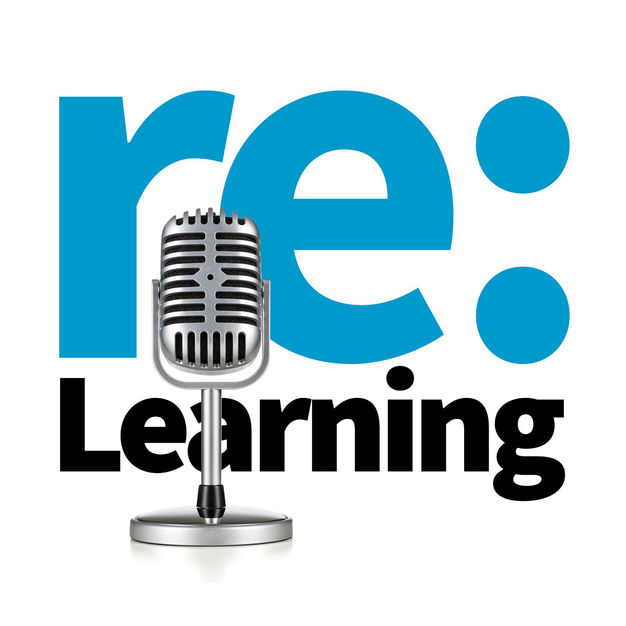 ReLearning Podcast
ReLearning Podcast
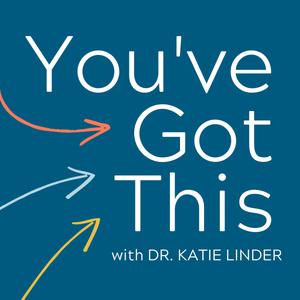 You've Got This | Tips & Strategies for Meaningful Productivity and Alignment in Work and Life
You've Got This | Tips & Strategies for Meaningful Productivity and Alignment in Work and Life
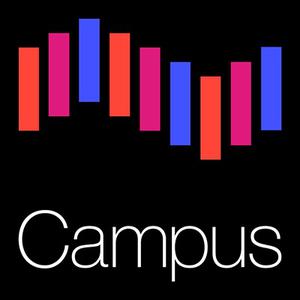 Campus by Times Higher Education
Campus by Times Higher Education
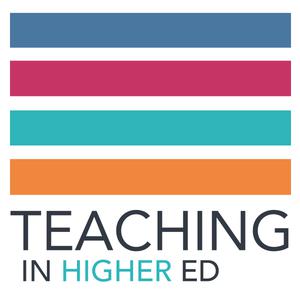 Teaching in Higher Ed
Teaching in Higher Ed
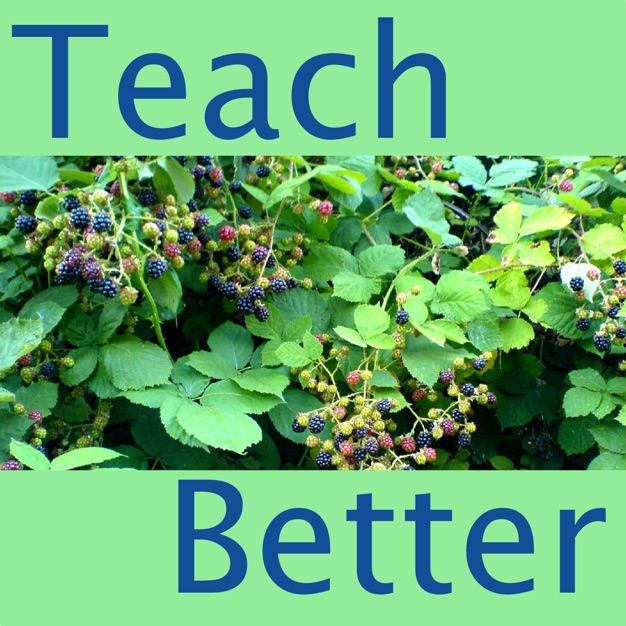 The Teach Better Podcast
The Teach Better Podcast
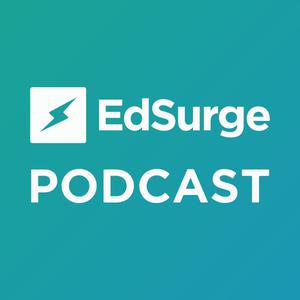 EdSurge Podcast
EdSurge Podcast